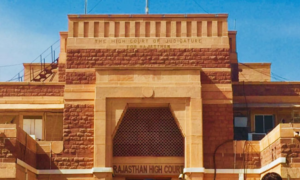
Section 276CC of the Income Tax Act, 1961, outlines provisions for prosecution in cases of failure to file the return of income. A recent decision by the Madras High Court sheds light on the application of this section and provides relief for genuine assesses.
Provisions and Relief: Section 276CC triggers prosecution for failure to furnish the return of income under specific circumstances, including non-compliance with notices issued under various sections of the IT Act. The proviso to Section 276CC offers relief to genuine assesses. Notably, if the net tax payable after deductions is less than Rs 10,000, prosecution under Section 276CC is not warranted.
Madras High Court Decision: In the case of Manav Menon vs Deputy Commissioner of Income Tax, the Madras High Court clarified the application of the proviso. The taxpayer, facing initiation of proceedings under Section 276CC, had belatedly filed the income return for the assessment year 2013-2014. The High Court ruled that the proviso protects genuine assesses who file returns belatedly but within the assessment year or have paid substantial tax dues.
Key Considerations: The decision emphasizes an objective assessment of the applicability of prosecution provisions based on individual cases. Assessments should consider both Section 276CC and relevant jurisprudence, ensuring a fair and contextual application of the law.

In conclusion, the recent Madras High Court decision reaffirms the importance of the proviso to Section 276CC in providing relief to taxpayers, emphasizing the need for a case-specific evaluation.
![]()



